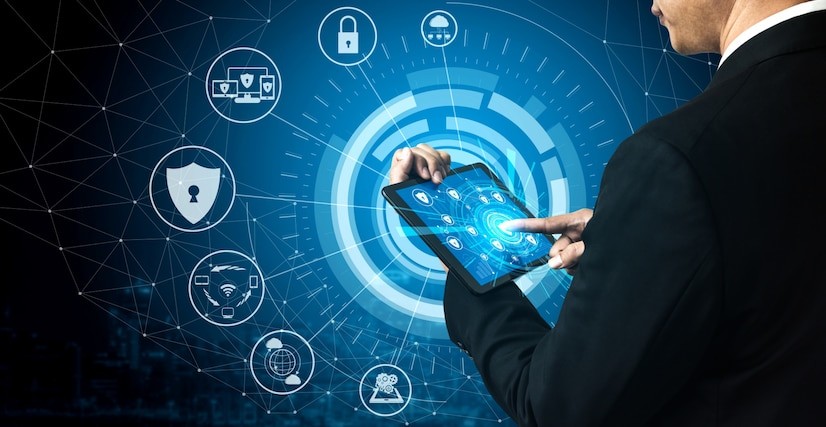The Top Things You Must Do to Protect Yourself from Cyber-Terrorists

We often hear about it in the news; terrorist attacks that have been carried out using technology. Cyber-terrorists are a real and present danger, from hacking into systems and disabling them to wreaking havoc with social media.
But what do we know about them?
Are they just disgruntled individuals with a computer and some time on their hands?
Doesn’t seem so.
They are well-organized, often work in cells, and are also ingenious at what they do.
So, when they put their minds to creating chaos, what can we do to protect ourselves?
Let’s look at the defenses against cybercrime that’ll help keep you, your family, your organization, and your homeland safe.
Educate Yourself:
What’s the first step in protecting yourself from anything? Learning about it, of course. The same goes for cyber-terrorism. When you know how these criminals operate, you’re in a much better position to defend yourself. Most of us think cybercrime is related to hacking, but that’s just a small part. Cyber-terrorists also use social media to spread their message and recruit followers. They may even use it to launch attacks. So, you must always stay up-to-date on the latest news and trends.
There are many ways to educate yourself on the subject. You can read articles, watch documentaries, and even take courses on homeland security. Several colleges for homeland security even offer online courses.
Use Strong and Smart Passwords:
It may seem like a cinch, but it may surprise you how many people use passwords that are easy to guess. From date of birth to mother’s maiden name, there are many ways for someone to figure out your password if it’s not strong enough. A strong password mixes upper- and lower-case letters, numbers, and symbols, with at least eight characters.
Also, use different passwords for different accounts. That way, if one account is compromised, the others remain safe.
Another common mistake is noting their passwords on their phones or computers. If your device is ever lost or stolen, all of your passwords are now in the wrong hands.
Employing a password manager is the best way to keep track of your passwords. This way, you only have to remember one master password. The password manager will do the rest.
Keep Your Software Up-to-Date:
Did you know that most cyber-attacks could be prevented if people kept their software up-to-date? It’s true. Every software company releases updates, including security patches for the latest vulnerabilities. For instance, the WannaCry ransomware attack of 2017 could have been prevented if people had installed the security update that Microsoft released a few months prior.
So, if you’re not updating your software, you could be opening yourself up to attack. It is crucial for your operating system, web browser, and any plugins or extensions you use.
Backup Your Files:
If you’re hit with ransomware, the cyber-terrorists will demand that you pay them a ransom to get your files back. But what if you have a backup? Then, you can ignore their demands and go about your business.
Indeed, this only works if you’ve been backing up your files regularly. And this is something you should be doing regardless, as it’s always possible for your computer to crash or files to become corrupted.
An effective way to backup your files is to use cloud storage. Your files will remain safe even if your computer is destroyed. Your files are also easily accessible from any device, no matter where you are.
If you depend on hard drives or other physical storage devices, keep them protected. It includes encrypting them so that the data on them will be safe, even if they’re lost or stolen.
Use a Full-Service Internet Security Suite:
An internet security suite does more than just antivirus protection. It also includes things like a firewall, spam filters, and web filters. These features are all critical in protecting you from different types of cyber-attacks.
Some suites also come with parental controls and anti-theft features. So, it’s definitely worth the investment.
Many internet security suites are available, and the one you choose should be based on your needs. If you have children, for instance, you may want to go with a suite that includes parental controls. And if you travel a lot, you may want to choose one with anti-theft features.
Strengthen Your Home Network:
Your home network is your first line of defense against cyber-attacks. However, there are many ways to make your home network more secure, from your router to your WiFi network.
A significant step you can take is to ensure your router is up-to-date. It includes ensuring that you’re running the latest firmware and that all security features like firewalls and encryption are enabled.
You must also use a VPN, which encrypts all the data sent over your network. As a result, it makes it much more difficult for hackers to intercept your data.
And finally, make sure your WiFi network is secure. That means using a strong password and hiding your SSID. SSID is the name of your WiFi network. By hiding it, you make it more difficult for hackers to find and connect to your network.
Keep Your Personal Information Private:
The less personal information you share online, the better. Hackers can use even the smallest piece of information to steal your identity or commit fraud. So, think twice before sharing things like your birth date, address, or even your mother’s maiden name.
If you’ve noticed, several social media sites have posts where you must insert the last three digits of your phone number. While this may seem harmless, it’s a bad idea. Hackers can use that information to figure out your full phone number. Once they have your number, they can easily find other personal information about you, such as your address.
And if you must share personal information, ensure you’re doing so on a secure website. You can tell if a website is secure if the URL starts with “HTTPS.”
When in doubt, err on caution and don’t share.
Final Thoughts:
Cyber-attacks are becoming more and more common. Whether it’s a ransomware attack or someone trying to steal your personal information, you must be vigilant about protecting yourself. You could lose a lot of money or even your identity if you’re not careful.
Fortunately, there are many ways to protect yourself from these attacks in today’s digital age. For example, you can depend on technological advancements like full-service internet security suites and VPNs or take measures to keep your personal information private.
No matter what you do, just ensure you take the necessary steps to protect yourself from these cyber-criminals.
After all, it’s better to be safe than sorry.





